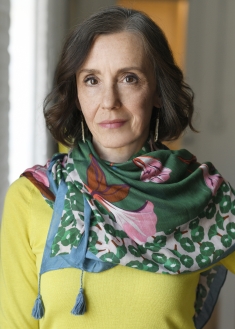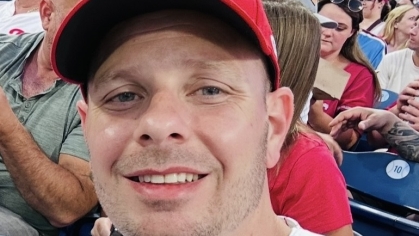
Since 2006, Rutgers School of Social Work has been committed to developing a gerontological social work workforce that is prepared to provide leadership and demonstrate excellence in supporting adults as they age.
The School’s Hub for Aging Collaboration serves as a nexus to strengthen networks among community leaders, researchers, service providers, policymakers, and others toward innovation and leadership for aging in community. Fueled by the social work value of leveraging social relationships for change, the Hub works across disciplines and sectors to improve environments for aging equity among individuals, families, and communities in all of their diversity.
The School also offers an MSW certificate in Aging & Health, which provides students the opportunity to engage in classroom and practicum-based learning at the interface of aging and health.
We spoke with Carla Powers, SSW ’15, who earned an MSW certificate in Aging & Health from the School of Social Work, about her path to a career in gerontological social work.
Tell us about your journey to a career in social work.
Being a caregiver for my late mother inspired me to pursue a Master of Social Work degree. In this role, I had a crash course in navigating the complexities of the health care system, supporting my mom’s health care challenges, and her right to self-determination. I learned about the effects of grief and the importance of managing mental health issues. We interfaced with many health care professionals who provided invaluable physical and emotional support. Based on those experiences, I knew I could make a meaningful contribution to the social work profession and decided to go back to school to earn my MSW.
Why did you choose to attend Rutgers School of Social Work?
My friend pursued her MSW at Rutgers a few years before me. Her coursework and practicum placements were interesting and led to my enrollment. When I attended a Rutgers open house information session, I felt at home with the School of Social Work professors and alumni. Their dedicated engagement in the social work profession was impressive. The rigor of the program and rich course offerings appealed to my intellectual curiosity and the flexible scheduling options were a plus. Rutgers did not disappoint; I am proud to be a Rutgers graduate. In fact, I continue to recognize the great caliber of social work service when I interface with a fellow Rutgers School of Social Work graduate. They demonstrate the utmost professionalism, compassion, and desire to work collaboratively.
What inspired you to earn a certificate in Aging and Health?
I always enjoyed interacting with older adults. Through self-reflective coursework at Rutgers, I realized a contributing factor in pursuing an Aging and Health Certificate was due to a lack of grandparent relationships while growing up. One set of grandparents passed away before I was born, and I had infrequent contact with the other set that lived far away. Given my personal experiences as a caregiver for my mother (as mentioned earlier), I felt confident I could make a positive impact supporting older adults.
What are you currently doing for work?
As a social worker for Jersey Shore University Medical Center’s Geriatrics Department, I work with a small interdisciplinary team, both inpatient and outpatient, to support older adults with increased frailty and challenging psychosocial issues. Our team was hired to create and build this department; we are small but mighty. We advocate for and educate on the specialized needs of frail older adult hospital patients and collaborate with staff to enhance care. We offer comprehensive post-hospital visits in our outpatient office to educate patients/caregivers about diagnoses and care needs, manage polypharmacy, and provide psychosocial support (physical and emotional). Additionally, I manage and host a monthly “Geri Talk” series, which allows for care providers to share their unique expertise and experiences working with older adults with the goal of collaborating to improve care outcomes.
How do you juggle professional commitments?
Self-care is paramount. I have realized the benefits of taking time throughout the day to reset and always eat lunch. I do all my documentation onsite. I rarely take work home, and I enjoy outside interests. Having a social work support system is helpful for processing cases and swapping information to avoid burnout. It also provides networking opportunities. This was not initially available to me in my current role; I created a collaborative social work group, and we’ve all benefited from this much-needed resource.
What advice would you give to our newest cohort of graduates?
The social work role greatly enhances patient care in any setting. Don’t underestimate your professional worth and the power of seeing a patient/client as part of a whole system and honoring his/her right to self-determination. Lastly, being a present listener takes training; it’s an invaluable skill that will enhance your practice as a social worker.



